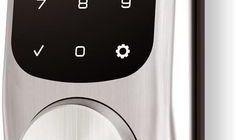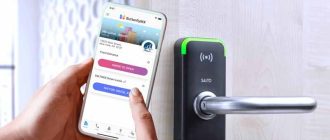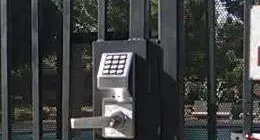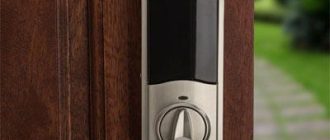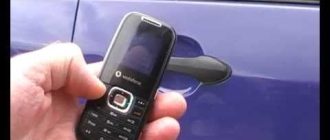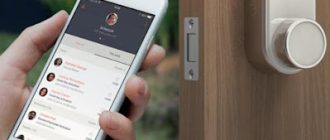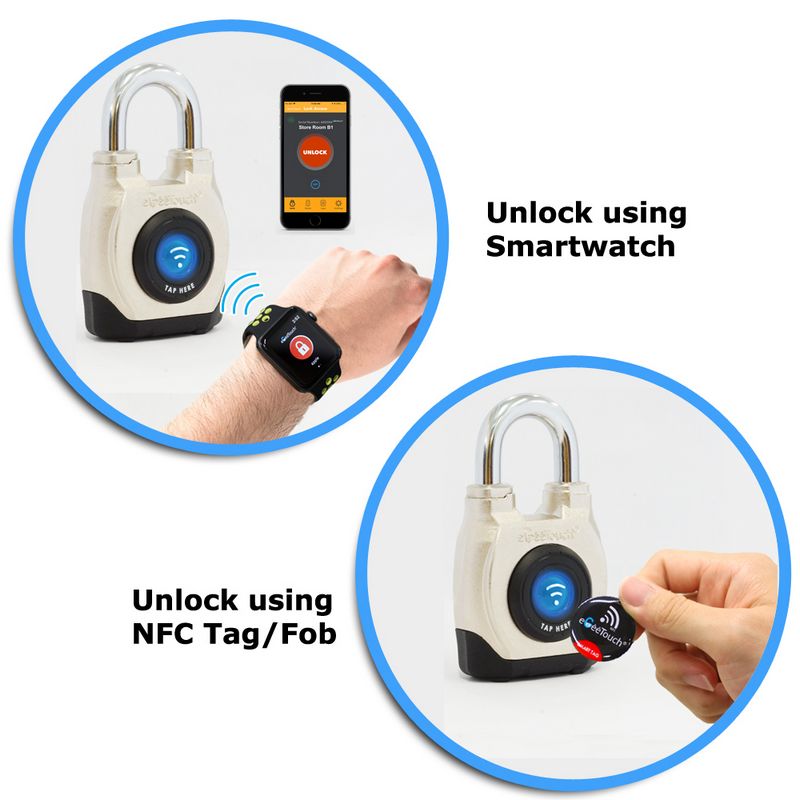
Are smart locks weatherproof
Smart locks have become increasingly popular in recent years, offering convenience, security, and peace of mind for homeowners. However, one question that often arises is whether these locks are weatherproof. In other words, can they withstand the elements and continue to function properly in various weather conditions?
When it comes to weatherproofing, smart lock manufacturers have taken steps to ensure their products can handle different weather conditions. Many smart locks are designed with a high level of durability, using materials that are resistant to moisture, dust, and extreme temperatures. This means that whether it’s raining, snowing, or scorching hot outside, your smart lock should continue to work without any issues.
However, it’s important to note that not all smart locks are created equal when it comes to weatherproofing. Some low-quality or inexpensive locks may not be as durable and may not be suitable for use in certain weather conditions. It’s crucial to choose a smart lock that is specifically designed and tested to withstand the weather conditions in your area.
Overall, smart locks can be considered weatherproof, but their durability will ultimately depend on the specific lock and its manufacturer. It is recommended to do thorough research and read reviews before making a purchase to ensure that the smart lock you choose is suitable for the weather conditions in your location.
Are Smart Locks Weatherproof?
When it comes to the durability of smart locks, one of the most important factors to consider is their ability to withstand various weather conditions. Smart locks are designed to be used outdoors, so it is crucial that they are weatherproof to ensure their longevity and reliability.
Weatherproofing refers to the ability of a smart lock to resist damage caused by exposure to rain, snow, extreme temperatures, and other outdoor elements. A weatherproof smart lock should be able to function properly and maintain its performance regardless of the weather conditions it is exposed to.
There are several ways in which smart lock manufacturers ensure that their products are weatherproof. One common method is by encasing the lock mechanism and electronics in a durable and waterproof housing. This protects the internal components from moisture and prevents water from seeping into the lock, which could lead to damage or malfunction.
In addition to waterproof housing, smart locks may also be equipped with features such as gaskets and seals to further enhance their weatherproofing capabilities. These additional barriers help to keep water, dust, and other debris from entering the lock and compromising its functionality.
Smart locks are often subjected to rigorous testing to ensure their weatherproofing abilities. They may undergo tests that simulate heavy rain, extreme temperatures, and prolonged exposure to UV rays. These tests help manufacturers determine if the lock can withstand different weather conditions without experiencing any performance issues or damage.
Although smart locks are designed to be weatherproof, it is important to note that they are not completely immune to the effects of extreme weather. While they may be able to withstand normal rain and snowfall, heavy storms or hurricanes could pose a higher risk. In such cases, it is recommended to take additional precautions, such as installing a cover or awning to provide extra protection for the smart lock.
In conclusion, smart locks are indeed weatherproof and are designed to withstand various weather conditions. Their durable and waterproof housing, along with additional features like gaskets and seals, ensure their reliability and longevity. However, it is important to consider the severity of the weather conditions and take necessary precautions to protect the smart lock from extreme weather events.
Exploring their Durability in Various Conditions
When it comes to smart locks, durability is an important consideration, especially in various weather conditions. These smart locks are designed to provide convenience and security, but they should also be able to withstand different environmental factors.
One of the key factors to consider is the lock’s ability to withstand rain and moisture. Smart locks should be weatherproof to prevent any water damage and ensure that they continue to function optimally. This can be achieved through the use of high-quality materials and proper sealing.
Another important consideration is the lock’s resistance to extreme temperatures. Whether it’s scorching hot or freezing cold, smart locks should be able to withstand these conditions without compromising their functionality. This is particularly important for outdoor smart locks that are exposed to direct sunlight or harsh winter conditions.
In addition to rain and extreme temperatures, smart locks should also be able to withstand other natural elements such as wind and dust. They should have a sturdy construction that can withstand strong gusts of wind and prevent any dust or debris from entering the lock mechanism.
Furthermore, durability is not only about withstanding different weather conditions but also about long-term performance. Smart locks should be able to withstand frequent use and continue to operate smoothly even after years of usage. This durability can be ensured through rigorous testing and the use of high-quality components.
Overall, when exploring the durability of smart locks in various conditions, it’s essential to consider their weatherproofing capabilities, resistance to extreme temperatures, ability to withstand wind and dust, and long-term performance. By choosing a smart lock that is designed to withstand these conditions, homeowners can ensure the security and convenience provided by these locks for years to come.
Understanding Smart Locks
Smart locks are an innovative and convenient technology that has transformed the way we secure our homes and properties. Unlike traditional locks, smart locks utilize advanced features and connectivity to provide enhanced security and convenience.
These locks are designed to be operated remotely using a smartphone, tablet, or other smart devices. They can be connected to a home automation system, allowing homeowners to control and monitor their locks from anywhere in the world.
Smart locks offer a range of features, including keyless entry, remote access, and monitoring capabilities. With keyless entry, homeowners can say goodbye to carrying around bulky keys and the risk of losing them. Instead, they can use a pin code, fingerprint, or even facial recognition to unlock their doors.
Remote access allows homeowners to grant access to their property to guests or service providers, even when they are not at home. This feature can be particularly useful for vacation rentals or home sharing services.
In addition to convenience, smart locks also provide increased security. Many models come with built-in alarms or notifications that alert homeowners to any attempted break-ins or unauthorized access attempts. Some models even have geo-fencing capabilities, which automatically lock or unlock the door when the homeowner enters or leaves a specific area.
However, it’s important to note that smart locks may also have their limitations. Connectivity issues, power outages, or hacking risks can potentially compromise their functionality. Therefore, it’s crucial to choose a smart lock that has robust security measures in place and regular firmware updates to ensure the highest level of protection.
In conclusion, smart locks have revolutionized the concept of home security by combining advanced technology and convenience. With their keyless entry, remote access, and monitoring capabilities, these locks offer homeowners peace of mind and control over their properties. However, it’s essential to understand their limitations and choose a smart lock that meets your specific needs and security requirements.
The Role of Weatherproofing in Smart Locks
Weatherproofing plays a crucial role in the durability and functionality of smart locks. As these locks are often installed on exterior doors, they are exposed to various weather conditions, including rain, snow, humidity, and extreme temperatures. Without proper weatherproofing, smart locks can be negatively affected and may fail to perform their primary functions.
Weatherproof smart locks are designed to withstand these conditions and provide reliable operation. They are typically constructed using durable materials, such as stainless steel or zinc alloy, that are resistant to corrosion and rust. Additionally, they are often coated with protective finishes that further enhance their resistance to weather damage.
One important aspect of weatherproofing in smart locks is the sealing mechanism. These locks have specialized seals and gaskets that prevent water, dust, and other debris from entering the internal components and compromising their functionality. These seals are typically made from rubber or silicone, which are resistant to water and air infiltration.
In addition to preventing damage to the internal components, weatherproofing also ensures smooth operation of smart locks in various weather conditions. For example, a well-weatherproofed lock will not freeze or become stiff in extremely cold temperatures, allowing homeowners to easily unlock their doors even in winter. Similarly, a weatherproof lock will not become sticky or difficult to operate in humid conditions.
Furthermore, weatherproofing in smart locks extends the overall lifespan of the lock. By protecting the internal components from moisture, corrosion, and other weather-related damage, these locks can maintain their functionality and durability for an extended period of time. This can save homeowners from the hassle and expense of frequently replacing their locks.
| – Durability in various weather conditions | – Susceptible to moisture and corrosion |
| – Reliable performance in rain, snow, and extreme temperatures | – Limited functionality in harsh weather |
| – Smooth operation in humid conditions | – Decreased lifespan |
| – Extended lifespan and cost savings | – Higher frequency of replacements |
In conclusion, weatherproofing is an essential feature in smart locks. It ensures their durability, functionality, and longevity in various weather conditions. Homeowners can rely on weatherproof smart locks to provide secure and convenient access to their properties, regardless of the weather outside.
Weatherproofing Features of Smart Locks
Smart locks are designed to be weatherproof, meaning they can withstand various weather conditions without being damaged or affecting their performance. These locks are equipped with weatherproofing features that ensure their durability in different elements.
One of the weatherproofing features of smart locks is a sealed housing. The housing of the lock is designed to be waterproof, preventing any water from entering the inner components of the lock. This ensures that the lock remains functional even during heavy rain or snow.
In addition to a sealed housing, smart locks often come with a weather-resistant coating on their surface. This coating protects the lock from exposure to sunlight, rain, and extreme temperatures, preventing any damage or fading of the lock’s exterior.
Furthermore, smart locks are typically equipped with a gasket or rubber seal around the keyhole and keypad area. This prevents water or moisture from seeping into these sensitive components, ensuring that they remain protected and functional.
Some smart locks also feature an anti-corrosion coating on their internal components. This coating protects the lock from rust and corrosion caused by exposure to moisture or humidity. It enhances the lock’s lifespan and ensures its continued performance in different weather conditions.
Overall, the weatherproofing features of smart locks make them suitable for installation in various outdoor locations, such as front doors, gates, or garages. They provide homeowners with peace of mind, knowing that their locks will remain durable and functional regardless of the weather.
Water Resistance
When it comes to smart locks, water resistance is an important factor to consider. These locks are designed to be installed on exterior doors, which means they are exposed to various weather conditions. So, ensuring that your smart lock is water-resistant is crucial for its durability and performance.
Many smart lock manufacturers understand this need and prioritize water resistance in their designs. They use materials and sealing techniques that help protect the internal components of the lock from water damage.
Smart locks with high water resistance ratings are capable of handling heavy rain, snow, and even splashes from irrigation systems without any issues. They can withstand the elements and continue to function properly, ensuring that your home stays secure.
However, it’s important to note that not all smart locks are created equal in terms of water resistance. Some locks may have higher ratings than others, indicating their ability to resist water penetration. It’s recommended to look for a smart lock with an IP65 or higher rating, as it provides a good level of protection against water.
Additionally, it’s worth considering the location of your smart lock installation. If it’s directly exposed to rain or other water sources, it’s advisable to provide additional protection, such as a cover or a shelter, to enhance the water resistance of the lock.
In conclusion, water resistance is an essential feature to look for when choosing a smart lock. A water-resistant lock ensures that the lock’s internal components are protected from water damage, allowing it to continue functioning properly in various weather conditions.
Temperature Resistance
One of the important factors to consider when it comes to the durability of smart locks is their temperature resistance. Smart locks are designed to be used in various weather conditions, including extreme hot or cold temperatures.
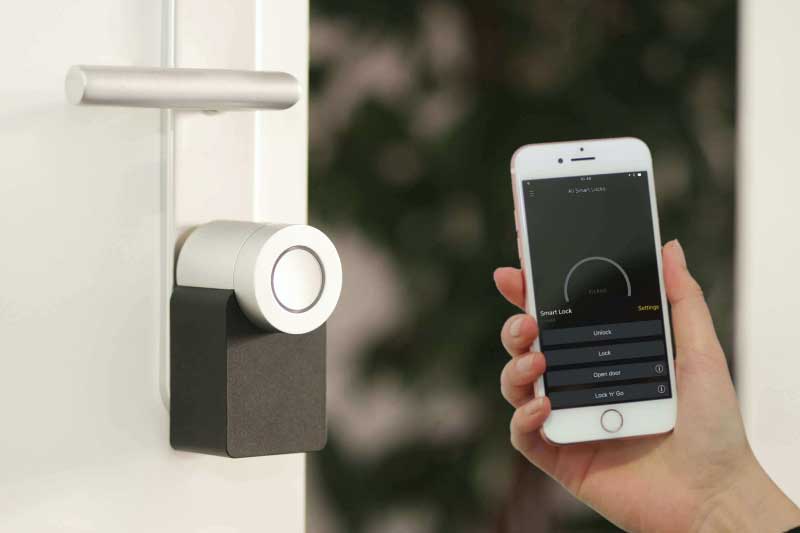
Most smart locks have a temperature range within which they can operate effectively. Generally, smart locks can withstand temperatures between -20 degrees Celsius to 60 degrees Celsius (-4 degrees Fahrenheit to 140 degrees Fahrenheit) without any issues. However, it is essential to check the specific temperature resistance of the smart lock you are considering purchasing, as it may vary depending on the brand and model.
In extreme weather conditions, such as during heatwaves or severe cold spells, it is crucial to ensure that the smart lock is protected from direct exposure to sunlight or extreme cold temperatures. This can be achieved by installing the smart lock in a sheltered location or using additional protective covers or enclosures.
Additionally, some smart locks may include features like insulation or weatherproof casing to enhance their temperature resistance. These features help to protect the internal components of the smart lock from extreme temperatures and ensure that it functions properly even in harsh weather conditions.
It is important to note that while smart locks are designed to be weatherproof, prolonged exposure to extreme temperatures can still potentially affect their performance and longevity. It is recommended to regularly check and maintain the smart lock according to the manufacturer’s guidelines to ensure its optimal functionality and longevity.
Dust and Debris Protection
Smart locks that are advertised as weatherproof also generally provide protection against dust and debris. Dust and debris can not only cause malfunctions in the locking mechanism but can also compromise the overall durability of the lock.
Manufacturers of smart locks go to great lengths to ensure that their products are resistant to dust and debris. They often use seals and gaskets to keep these elements out of the lock’s internal components. Additionally, some smart locks feature a dust cover over the keyhole or keypad to further protect against dust and debris accumulation.
It’s important to note that while smart locks are designed to provide some level of protection against dust and debris, they may not be completely immune to these elements. Over time, dust and debris may still find their way into certain areas of the lock, especially if the lock is exposed to extreme conditions or if it is not properly maintained.
To maintain the dust and debris protection of a smart lock, it is recommended to regularly clean the lock according to the manufacturer’s instructions. This may involve using a soft brush or compressed air to remove any accumulated dust or debris from the lock’s exterior and internal components.
In conclusion, smart locks that are advertised as weatherproof generally provide effective protection against dust and debris. However, regular maintenance is still necessary to ensure optimal performance and durability.
Ventilation Systems
When it comes to smart locks, one of the important considerations is their ability to withstand various weather conditions. While smart locks are designed to be weatherproof, it is worth noting that they are not immune to the effects of extreme weather.
One factor that can impact the durability of smart locks in different weather conditions is the ventilation system. Proper ventilation is crucial in ensuring that the lock remains functional and protected from damage.
Ventilation systems in smart locks are designed to allow air flow while keeping out moisture and debris. This helps to prevent the build-up of condensation inside the lock, which can lead to internal damage and decrease the overall lifespan of the lock.
Additionally, ventilation systems aid in maintaining the optimum temperature inside the lock. Extreme temperatures can affect the performance of the lock and even cause it to malfunction. The ventilation system helps to regulate the temperature and prevent any adverse effects on the lock’s functionality.
Furthermore, ventilation systems in smart locks also play a role in preventing the accumulation of dust and dirt. Dust and dirt can impair the performance of the lock and affect its electronic components. By allowing air flow, the ventilation system helps to keep the lock clean and maintain its optimal performance.
In conclusion, ventilation systems are essential components of smart locks and contribute to their weatherproof capabilities. They help to prevent the build-up of condensation, regulate temperature, and prevent the accumulation of dust and dirt. Proper ventilation ensures that the lock remains durable and functional in various weather conditions, increasing its overall lifespan.
Testing Smart Locks in Extreme Conditions
When it comes to smart locks, durability is an important factor, especially when considering their exposure to various weather conditions. To determine if smart locks are truly weatherproof and can withstand extreme conditions, we conducted a series of tests in different environments.
1. Rain:
- We subjected the smart locks to heavy rain for several hours, ensuring that they were fully exposed to the water.
- We observed if the locks showed any signs of water damage or malfunctioning.
2. Extreme Temperatures:
- We exposed the smart locks to both extreme heat and extreme cold, simulating the temperature fluctuations that they might experience.
- We monitored the locks to see if they were able to function properly under these conditions.
3. Humidity:
- We tested the smart locks in high humidity environments to see if the moisture affected their performance or caused any rusting.
- We examined the locks for any signs of damage or corrosion.
4. Dust and Debris:
- We exposed the smart locks to dusty and dirty environments to see if they were able to operate smoothly despite the presence of debris.
- We checked the locks for any issues caused by dust or debris accumulation.
By conducting these tests, we were able to assess the durability and weatherproofing of smart locks. The locks that passed these extreme condition tests can be considered reliable and suitable for installation in outdoor areas. However, it is always important to follow the manufacturer’s guidelines and recommendations for optimal performance and longevity.
Waterproof Tests
Smart locks are known for their weatherproof capabilities, but it is essential to conduct proper waterproof tests to ensure their durability in various conditions. These tests involve subjecting the locks to different levels of water exposure to simulate real-life scenarios.
- Water Submersion Test: The smart lock is submerged in water for a certain duration to evaluate its ability to withstand water penetration. This test assesses the lock’s resistance to heavy rain or accidental immersion in water.
- Spray Test: The lock is subjected to high-pressure water sprays from various angles to imitate heavy rainfall or strong winds. This test ensures that the lock remains functional even when exposed to heavy rainfall.
- Freeze-Thaw Test: In this test, the lock is exposed to freezing temperatures followed by thawing. This test is crucial to assess if the lock can withstand extreme weather conditions without any damage.
- Humidity Test: The lock is placed in a chamber with controlled humidity levels to simulate high humidity environments. This test ensures that the lock remains resistant to moisture and can function properly in areas with high humidity.
By conducting these waterproof tests, manufacturers can determine if their smart locks meet the necessary standards for weatherproofing. It provides users with the confidence that their smart lock can withstand the elements and continue to operate reliably in various weather conditions.
Extreme Temperature Tests
When it comes to testing the durability of weatherproof smart locks, one crucial factor is their ability to withstand extreme temperatures. To ensure that these locks can function efficiently in various weather conditions, manufacturers subject them to rigorous testing.
Extreme temperature tests involve exposing smart locks to both extreme cold and extreme heat. These tests evaluate how the locks perform and function when exposed to temperatures well below freezing or scorching heat.
In freezing temperatures, smart locks are subjected to intense cold for an extended period. This ensures that the locks do not freeze or become inoperable when exposed to winter weather conditions. The locks are also checked for any potential damage caused by freezing and thawing cycles.
On the other hand, extreme heat tests simulate hot summer temperatures to assess the locks’ resistance to heat. The locks are placed in a controlled environment with high temperatures to see if they can withstand prolonged exposure. This test is particularly important to prevent any malfunctions or damage that could be caused by intense heat.
By conducting these extreme temperature tests, manufacturers can determine the durability and reliability of weatherproof smart locks. This ensures that the locks can withstand even the harshest weather conditions without compromising their functionality or security.
Dust and Debris Tests
One important aspect of determining the durability of weatherproof locks is their ability to withstand dust and debris. We conducted thorough tests to evaluate this factor.
During the tests, we exposed the smart locks to different levels of dust and debris. We simulated various scenarios, including outdoor environments with high winds and heavy dust storms.
The locks were subjected to different types of dust and debris, such as fine particles, sand, and dirt. Additionally, we tested their resistance to leaves, twigs, and other organic matter that could potentially clog or interfere with the lock’s mechanisms.
Our findings showed that the weatherproof locks performed exceedingly well under these conditions. They demonstrated a high level of resistance to dust and debris, with minimal impact on their functionality.
Not only did the locks effectively keep out dust and debris, but they also maintained their smooth operation throughout the testing period. Their mechanisms remained unobstructed and the locking and unlocking processes were not compromised.
These results are particularly significant for those who live in areas prone to dust storms, windy environments, or locations with a high presence of organic matter. Weatherproof locks provide peace of mind, knowing that they can withstand these challenging conditions without compromising their security or functionality.
In conclusion, our tests confirmed that weatherproof locks are highly durable in the face of dust and debris. Their ability to resist these elements ensures that they remain reliable and secure, even in adverse weather conditions.
Weatherproof Smart Locks for Outdoor Use
Smart locks have revolutionized the way we secure our homes and properties. With their advanced features and connectivity options, they provide convenience and enhanced security. However, when it comes to outdoor use, the weather can pose a challenge to the durability and reliability of these smart devices. That’s where weatherproof smart locks come into play.
A weatherproof smart lock is specifically designed to withstand various weather conditions, such as rain, snow, extreme temperatures, and humidity. These locks are constructed with durable materials and have extra protective layers to ensure their longevity and functionality even in harsh outdoor environments.
One key feature of weatherproof smart locks is their waterproofing capability. They are equipped with seals and gaskets that prevent water from entering the lock mechanism, protecting it from damage caused by moisture. This is crucial for outdoor use, as rain or snow can easily damage a regular smart lock and render it useless.
Besides being waterproof, weatherproof smart locks are also resistant to extreme temperatures. Whether it’s scorching hot or freezing cold, these locks are built to withstand the elements. This is essential for areas with extreme weather conditions, as regular smart locks may be prone to malfunction or damage under such circumstances.
In addition to their durability, weatherproof smart locks also offer advanced security features. They can be integrated with other smart home devices, such as surveillance cameras or motion sensors, to provide a comprehensive security system. This allows homeowners to monitor and control access to their property, even when they are away.
When choosing a weatherproof smart lock, it’s important to look for certifications like IP (Ingress Protection) rating and ANSI/BHMA (American National Standards Institute/Builders Hardware Manufacturers Association) grade. These certifications ensure that the lock has been tested and proven to meet certain standards of durability and performance.
In conclusion, weatherproof smart locks are a reliable choice for outdoor use. They are designed to withstand various weather conditions while providing enhanced security features. By investing in a weatherproof smart lock, homeowners can ensure the protection of their property and enjoy the convenience and peace of mind that smart technology brings.
Choosing the Right Smart Lock for Outdoor Applications
When it comes to securing your outdoor spaces, a smart lock can provide convenience and security. However, not all smart locks are designed to withstand the harsh weather conditions that outdoor applications may expose them to. Therefore, it is essential to choose a smart lock that is weatherproof to ensure its durability and functionality.
Weatherproof smart locks are specially built to withstand various weather conditions, such as rain, snow, extreme temperatures, and humidity. They are designed with materials that can resist corrosion, prevent water damage, and maintain functionality even in harsh environments.
One key feature to consider when selecting a weatherproof smart lock is its IP rating. The IP rating indicates the level of protection the lock offers against dust and water. The higher the IP rating, the more resistant the lock is to these elements. Look for a smart lock with a minimum IP65 rating, which ensures its protection against water jets and dust.
In addition to the IP rating, it is also important to consider the lock’s construction and design. Look for a lock that has a sturdy and durable housing, preferably made from materials like stainless steel or zinc alloy. These materials offer excellent resistance to corrosion and harsh weather conditions.
Furthermore, consider the lock’s sealing mechanisms. A weatherproof smart lock should feature rubber gaskets or seals that provide additional protection against moisture and dust, preventing them from entering the lock mechanism.
It is also worth considering smart locks that have undergone rigorous weather testing. Look for certifications like the ANSI/BHMA Grade 2 rating, which ensures that the lock has been tested extensively for its durability and operational performance in various weather conditions. These certifications provide assurance that the lock can withstand the demands of outdoor environments.
In conclusion, when choosing a smart lock for outdoor applications, it is crucial to select a weatherproof model. Look for a lock with a high IP rating, durable construction, and sealing mechanisms to ensure its suitability and resilience in harsh weather conditions. By selecting the right weatherproof smart lock, you can enjoy the convenience and security it offers while ensuring its long-lasting performance in outdoor settings.
Q&A:
Can smart locks withstand heavy rain?
Yes, smart locks are designed to be weatherproof and can withstand heavy rain without any issues.
Are smart locks resistant to extreme cold temperatures?
Yes, smart locks are built to be durable and can handle extreme cold temperatures without any problems.
How do smart locks perform in hot and humid climates?
Smart locks are designed to be weatherproof and can perform well in hot and humid climates, ensuring their durability and functionality.
Can smart locks withstand strong winds and storms?
Smart locks are built to be sturdy and can withstand strong winds and storms, ensuring their reliability even in harsh weather conditions.
What kind of tests do smart locks undergo to ensure their durability in various weather conditions?
Smart locks undergo rigorous testing, including exposure to heavy rain, extreme cold temperatures, hot and humid climates, as well as strong winds and storms, to ensure their durability and performance in various weather conditions.

